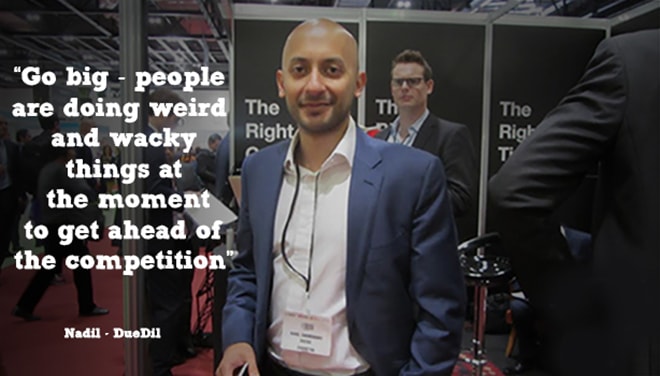We’ve had an exciting two days at The Great British Business Show last week, speaking to many of London’s top employers, many of whom started out as fresh graduates just like you.
So we thought, what better way to get graduate advice than from the people who have successfully navigated the graduate job minefield.
We know that for many graduates it can be overwhelming attempting to juggle completing a degree with finding that great graduate job, especially if you are unsure of what career you actually want to pursue after graduation. For more tips, check out our blog on how to figure out what your ideal graduate job is.
But speaking to many employers it’s clear that whatever your first job, you may find your career trajectory changing overtime.

-
Emelia, an Account Manager of a leading UK web hosting provider started out “working for an art publishing company as a runner – it was like running around being the PA, it was hard work but good experience”.
Senior New Business Advisor, Rachel initially started out her career working in a contact centre, though previously pondered the idea of being a teacher, she then moved on to The Telegraph working in advertising and is now a Telesales Manager.
Kouliyad, Director of a video production company, on the other hand says “This is exactly what I wanted to do [after university] but I couldn’t find work that involved this so that is why we set up our own company”.
Whether searching for your first job or one-hundred-and-first job, navigating the job hunt and attempting to stand out from the crowd can a difficult and timely process.
-
“Go big…” says Senior Business Development Manager Nadil “… people are doing weird and wacky things at the moment to get ahead of the competition.
We’ve had guys (who have joined our company now) … who came prepared with knock-up business cards with their own name, our company brand, on a card to give to us. They would call us pretending to be a fake company just to learn more about us”.
Rachel’s advice is, “Don’t give up you’ll get a lot of ‘nos’ before you get a yes and just go in there with everything you’ve got. You’ve got to show personality. I got all my jobs by just having a joke with the person doing the interview”.
What does a resignation letter need to include?
- Details of the position you are leaving
- How much notice you are giving (this needs to be whatever is specified in your contract, usually 1 month for entry-level or graduate jobs)
- When your last day will be
- A thank you for the opportunity to work at the company
- Finally, wishing the company good luck / a concluding sentence
-
Account Manager Emelia has observed that there is a tendency with some graduates, when “they go into this process of applying for a job they always say ‘I’m so enthusiastic’ but I think from an employer’s point of view, we want someone who is enthusiastic about the company, the industry and where it could lead to in the future”
“You’ve got to have a bit of get up and go” Nadil says “there is no point having a Bachelors, Masters or PhD and being a bookworm, you’ve got to be open to thinking outside the box”
While Rachel says employers often “don’t want someone who just sits there 9-5, especially in sales, you’ve got to be eager all the time”, “determination, lots of ambition and drive” are all key traits.
The transition from university to employment can be a confusing time for many graduates and there is no ‘one size fits all’ when it comes to completing those all-important applications. But, the key to setting yourself on the road to success is:
Be open minded about the types of opportunities to pursue
Be persistent and think about how you can show an employer you are different from all the other applicants
Understand the company you are applying to; their company culture, their industry and what you could bring to the team
The transition from university to employment can be a confusing time for many graduates and there is no ‘one size fits all’ when it comes to completing those all-important applications. But, the key to setting yourself on the road to success is:
Be open-minded about the types of opportunities to pursue
Be persistent and think about how you can show an employer you are different from all the other applicant
Understand the company you are applying to; their company culture, their industry and what you could bring to the team







